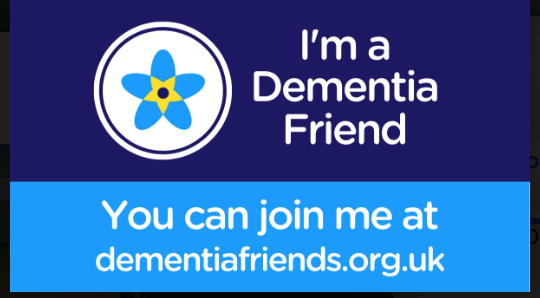7 Essential Skills Every Great Carer Should Have: A Comprehensive Guide
Being a carer is a challenging and rewarding job that requires a unique set of skills. Whether you’re caring for the elderly, disabled, or those with mental health issues, it’s crucial to have the right skills to provide the best possible care. In this comprehensive guide, we’ll explore the seven essential skills that every great carer should have. From communication and empathy to problem-solving and patience, we’ll delve into each skill in detail and provide practical tips on how to improve them. Whether you’re just starting your career in caring or looking to enhance your existing skills, this guide will provide you with valuable insights and tools to become the best carer you can be. So, let’s dive in and discover the essential skills that every great carer should have!
Empathy and Compassion
Empathy and compassion are two of the most important skills that every great carer should have. The ability to understand and share the feelings of those you care for is essential in building a strong and trusting relationship with them. Empathy allows you to connect with your clients on a deeper level and helps you to provide the best possible care.
Compassion, on the other hand, is the ability to show kindness, understanding, and empathy towards others. As a carer, it’s essential to show compassion towards those you care for, especially when they are going through a difficult time. Compassion can help to ease their pain and make them feel more comfortable and secure in your care.
To improve your empathy and compassion skills, it’s important to listen actively to your clients and to try to understand their perspective. Show them that you care and that you are there to support them in any way you can. By doing so, you’ll build a strong and trusting relationship with them that will help you to provide better care.
Communication Skills
Communication is another essential skill that every great carer should have. As a carer, you’ll need to communicate with your clients, their families, and other healthcare professionals. Effective communication is essential in ensuring that everyone is on the same page and that the best possible care is provided.
To improve your communication skills, it’s important to listen actively, ask questions, and clarify any misunderstandings. Use simple and clear language and avoid using jargon or technical terms that your clients may not understand. Be patient and respectful when communicating with your clients, and always take the time to listen to their concerns and needs.
Patience and Flexibility
Patience and flexibility are two more vital skills that every great carer should possess. Caring for others can be a challenging and demanding job, and it’s important to be patient and flexible in dealing with the various challenges that may arise.
Patience is essential when dealing with clients who may be experiencing physical or mental health issues. It’s important to be patient and understanding, and to take the time to listen to their concerns and needs. Flexibility is also important, as every client is different and may require different types of care. As a carer, it’s important to be flexible and adaptable in providing the best possible care for each individual client.
To improve your patience and flexibility skills, it’s important to practice mindfulness and stress-reducing techniques such as meditation or yoga. These techniques can help you to remain calm and focused, even in difficult situations.
Time Management
Time management is another important skill that every great carer should possess. As a carer, you’ll need to manage your time effectively to ensure that you can provide the best possible care for your clients.
To improve your time management skills, it’s important to prioritize your tasks and to create a schedule that allows you to manage your time effectively. Use tools such as calendars or to-do lists to help you stay organized and on track. It’s also important to be realistic about your workload and to ask for help or delegate tasks when necessary.
Problem-Solving and Decision Making
Problem-solving and decision-making skills are essential for every great carer. As a carer, you’ll need to be able to identify and solve problems quickly and effectively, and to make informed decisions that will benefit your clients.
To improve your problem-solving and decision-making skills, it’s important to gather all the necessary information and to consider all the available options before making a decision. Use critical thinking and logic to evaluate the pros and cons of each option, and be prepared to adjust your decision if necessary.
Organizational Skills
Organizational skills are another important skill that every great carer should have. As a carer, you’ll need to keep track of your clients’ medical records, appointments, and medications, among other things.
To improve your organizational skills, it’s important to create a system that allows you to keep track of all the necessary information. Use tools such as calendars, spreadsheets, or apps to help you stay organized and on top of your workload. It’s also important to keep your workspace organized and tidy, as this can help to reduce stress and improve productivity.
Self-Care and Stress Management
Self-care and stress management are two more essential skills that every great carer should have. Caring for others can be a stressful and demanding job, and it’s important to take care of yourself to avoid burnout and exhaustion.
To improve your self-care and stress management skills, it’s important to practice self-care techniques such as exercise, meditation, or spending time with friends and family. Take breaks when necessary, and make sure to prioritize your own health and well-being.
Training and Education
Finally, training and education are essential for every great carer. As a carer, it’s important to stay up-to-date with the latest developments in healthcare and to continue to improve your skills and knowledge.
To improve your training and education, it’s important to attend workshops, seminars, and conferences, and to take courses that will help you to improve your skills and knowledge. It’s also important to stay informed about the latest developments in healthcare and to read relevant literature and research.
Conclusion
In conclusion, caring for others can be a challenging and rewarding job that requires a unique set of skills. Whether you’re caring for the elderly, disabled, or those with mental health issues, it’s crucial to have the right skills to provide the best possible care. By improving your empathy and compassion, communication skills, patience and flexibility, time management, problem-solving and decision making, organizational skills, self-care and stress management, and training and education, you can become the best carer you can be. So, take the time to improve your skills and knowledge, and continue to provide the best possible care for your clients.

